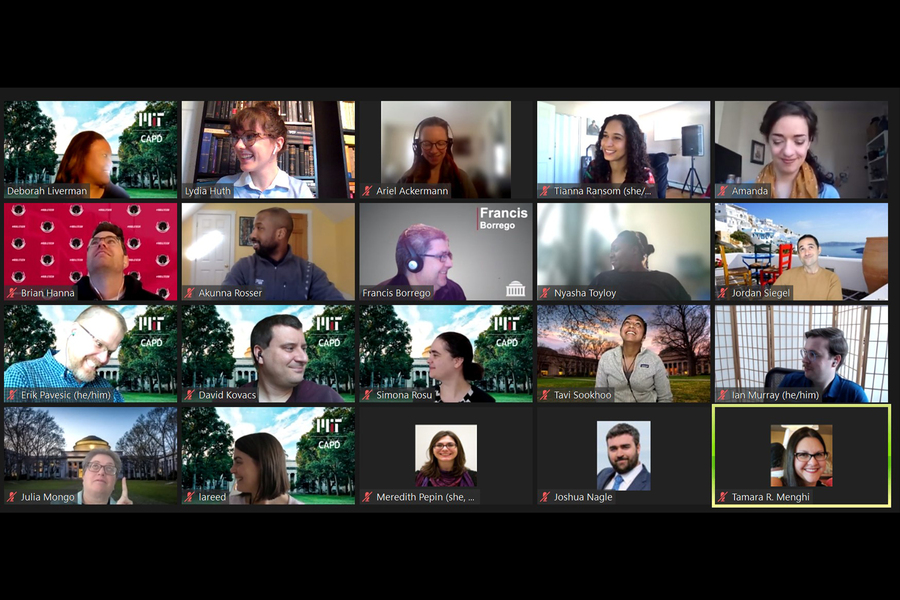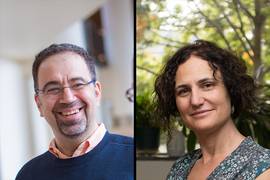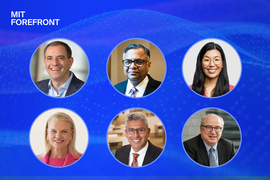MIT Career Advising and Professional Development (CAPD) has a simple mission statement: engaging undergraduates, graduate students, alumni, and postdocs in self-discovery to craft lives that are intellectually challenging, personally enriching, and of service to the world. With increased career uncertainty due to the pandemic, Deborah Liverman, executive director for CAPD, shares how the office can help students navigate a path to fulfilling work.
Q: How is CAPD supporting students now that recruitment for employment and graduate school is virtual?
A: As the world shifted to virtual operations, we pivoted to support our students in a brand-new digital landscape. Soon after campus closed in March 2020, CAPD mobilized staff to consider the rising needs for students across levels and programs. We anticipated increased support for those who had been negatively affected by the pandemic with limited summer opportunities, rescinded jobs, delayed job offers, and layoffs. To meet this need, we created new resources and found additional ways to identify students and graduates who needed career assistance. Simultaneously, we needed to help those students adjust to virtual interviewing.
It quickly became clear that incorporating more technology was a necessity, both for our office programming and for students in recruitment processes. To help students navigate these learning curves, we developed COVID-19 FAQs to address career concerns — including how to select a graduate school without a site visit — and resources to help report GPA for Covid-affected semesters, ace a virtual interview, and succeed in a virtual career fair. In addition, advising appointments went long-distance through video with extended hours to serve students in different time zones.
The office continues to plan virtual workshops, employer events, and career fairs, too, such as the Ivy+ Just in Time Career Fair, a collaboration with the Institute’s peer schools.
Q: With the uncertainty of the labor market, what advice do you have for students?
A: Students have tackled difficulties and disappointments over the last year, compounding the stress inherent in career planning. First and foremost, we encourage students to take care of themselves mentally and physically, and to reach out to our office for any career support they need — we care about their well-being as well as their work.
In this uncertain market, it’s smart to think about virtual and remote career exploration. There are thousands of internship and job listings on Handshake, and students can also consider how to bolster their skill set through classes on Coursera, edX, and LinkedIn Learning; independent projects; volunteering; or exploring potential graduate programs.
Flexibility, the ability to pivot, and resiliency can all be useful when navigating an uncertain labor market; however, there are positive indicators for an improved job market. The National Association of College and Employers’ Job Outlook 2021 Spring Update projects that hiring will rebound and employers will hire 7.2 percent more new college graduates from the Class of 2021 than they hired from the Class of 2020.
In this competitive market, be ready to apply to opportunities quickly. Check that your resume is ready, your LinkedIn profile is up-to-date, and that you’ve brushed up on your interviewing skills. Additionally, networking can help you discover more about career paths and, potentially, learn about hiring processes, including unlisted or upcoming job opportunities. MIT has a strong alumni network, many of whom are easy to connect with through the Alumni Association’s Alumni Advisor’s Hub. This platform can connect students with alumni for general career chats or more targeted conversations, such as coding or case interview practice.
Whether your plans have unexpectedly changed, you aren’t sure where to start, or you’re in the middle of conducting a job search, you are not alone. CAPD is here to help, and there is no formal advance preparation needed to book an appointment with a team member. For those who are graduating soon and working on their plans, we are eager to stay connected and offer our support, which doesn’t expire when you receive your degree. Our services are available to alumni up to two years after graduation.
Q. What advice do you have for students considering a job in academia or applying to graduate/professional school?
In academia, the increase in application rates for graduate and professional schools have made acceptances competitive. And for graduate students and postdocs seeking faculty positions, there are lessened opportunities due to flat or decreased university budgets. The competitiveness and dearth of opportunities reflect what is going on in the economy and, unfortunately, that means some graduates may not be able to pursue their first career choice this year.
If you’re unable to pursue your ideal plans, we encourage you to meet with one of our advisors so that we can support you in preparing to reapply and in making alternate plans. In addition to individual Zoom and phone appointments, which can be booked through Handshake, we also host virtual events to help students explore options. For example, we have invited guest speaker Lauren Celano to present seminars on April 28, including a General Overview of Career Opportunities for Graduate Students and Postdocs and Career Search Strategies: How to Identify Opportunities and Best Practices for Job Searching.
We know that this may be a disappointing or stressful period for many students, and that it can be difficult to determine next steps. As you move towards reapplication and consider alternate plans, our staff is here for you every step of the way.










